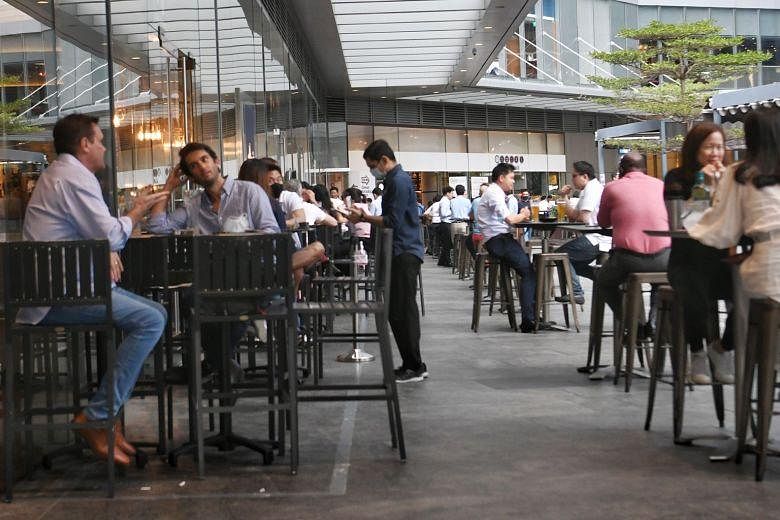From Sept 1, firms applying for new Employment Passes (EPs) for foreign professionals will need to pay them a fixed monthly salary of at least $4,500, up from $3,900 now.
The bar will be set higher for those in the financial services sector - from Dec 1, new EP holders will need to be paid at least $5,000, said the Ministry of Manpower (MOM) yesterday. This is the first time it has specified a higher qualifying salary for a certain sector.
Qualifying salaries for experienced candidates in their 40s will also be raised so that they remain around double the minimum salary for the youngest applicants.
The new criteria, which mark the biggest adjustment for EPs in the last decade, will take effect from May 1 next year for EP renewals.
Manpower Minister Josephine Teo said the financial services sector was singled out because of the higher salary norms, as well as strong hiring capacity in the sector.
Locals are also interested and available to take on jobs in the sector, though some may need training support before they can be effective in those roles, she said, adding that the move complements efforts by the Monetary Authority of Singapore (MAS) to encourage financial institutions to strengthen their pipeline of local talent.
MAS said yesterday that the higher salary criteria will further support hiring of Singaporeans in the sector, while allowing financial institutions to continue to complement their local workforce by tapping a global talent pool for deep skills and new expertise in areas such as cyber security, green finance and pandemic risk insurance.
MOM is also making several other changes to foreign work pass policies to support employment opportunities for locals as the Covid-19 crisis weighs on the job market.
For mid-skilled foreigners on S Passes, the minimum qualifying salary will be raised from $2,400 to $2,500 from Oct 1 for new applicants, and May 1 next year for renewals. The salary criteria for older and more experienced S Pass holders will be raised accordingly.
Firms will also have to advertise jobs on the MyCareersFuture.sg portal for at least 28 days, up from 14 currently, before they can apply for a new EP or S Pass, from Oct 1. The advertising rule currently applied only to EP-level jobs.
Said Mrs Teo: "If you (employers) are in a position to consider candidates from different sources, then they must not favour foreign applicants over local applicants that are equally qualified or equally suitable for the job.
"We also want to emphasise this point, once again, to businesses, that they must make efforts to build up and retain their Singaporean core. This is critical, particularly in a climate and a time like this."
While highlighting the Government's support for businesses which hire more locals, she stressed that Singapore must remain an open and connected hub for international businesses.
"We do value the contributions of our foreign workforce because they do complement the local workforce in keeping Singapore an attractive host to investors from around the world," she said.
There were 190,000 EP holders and 189,000 S Pass holders here as of June, said MOM.
It said in a statement yesterday that the growth of EP and S Pass holders has slowed in recent years, even as the economy expanded.
For EP holders, growth slowed from an average of 13,000 a year in the first half of the last decade to less than 3,000 in the second half. The growth in the number of S Pass holders slowed from an average of 17,500 annually in the first half of the last decade to less than 6,000 annually in the second half.
National Trades Union Congress assistant secretary-general Patrick Tay said yesterday that the latest moves send a strong signal to employers to ensure fair consideration and treatment of Singaporeans, especially in the current climate.
But he added in his Facebook post: "With higher wage floors for foreign workers, we will need to pay attention to ensuring wage parity, in particular for Singaporeans who are performing similar jobs."


